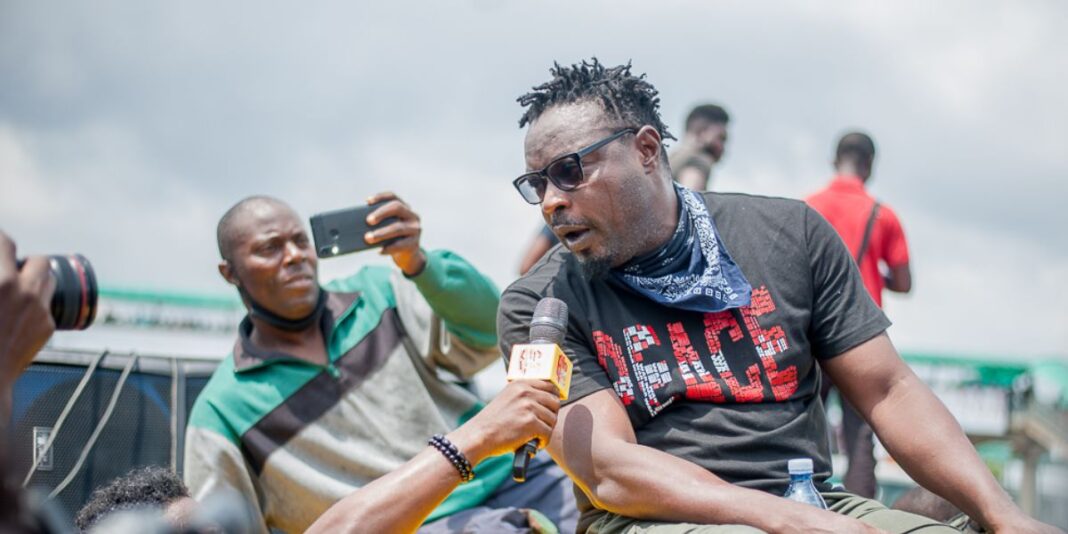Veteran Nigerian hip-hop artist and activist, Eedris Abdulkareem, has alleged that he was offered a N200 million bribe by an unidentified caller claiming to be a senator. According to Abdulkareem, the offer was made as underground “support” for his controversial new protest song, Tell Your Papa, which was recently banned by the National Broadcasting Commission (NBC).
In a viral video circulating online, the rapper recounted receiving a phone call from someone who introduced himself first as a “honourable,” and later claimed to be a senator. The caller reportedly referenced a meeting with government officials and Seyi Tinubu, the son of President Bola Tinubu, and assured Abdulkareem that he would be financially supported if he ignored other attempts to sway or silence him.


“He told me not to listen to any bribe offer I might receive from the government,” Abdulkareem said. “He said, ‘We’re going to sponsor you underground,’ and then offered N200 million. I asked him, ‘Did I tell you I needed anything from you?’”
Abdulkareem said he immediately rejected the offer, suspecting a ploy to manipulate or compromise him.
“From the moment I heard his voice, I knew it was a setup. I told him I wasn’t interested,” he said. “They want to record me and use it as blackmail. You people are thieves. May God punish all of you. I’ve been ready for this long ago.”
The rapper also accused those behind the call of trying to discredit him and twist his activism for their own agenda.
His controversial song, Tell Your Papa, which criticizes Nigeria’s political leadership and highlights economic hardship, was officially banned on Thursday, April 10, by the NBC. The move has since drawn criticism from civil society groups and music industry stakeholders.


The Performing Musicians Employers’ Association of Nigeria (PMAN) condemned the ban, warning that such censorship could have the opposite effect.
“In fact, it only serves to amplify the song’s message, especially considering the hardship Nigerians are currently facing,” PMAN stated.
Similarly, Media Rights Agenda (MRA) described the NBC’s decision as an “abuse of regulatory power,” accusing the commission of acting as a mouthpiece for the government.
“The NBC has completely misunderstood its role as an independent media regulator. It now functions like a propaganda agency working to shield government officials from criticism,” said Ayomide Eweje, Programme Officer at MRA.

As debate over censorship, artistic freedom, and political accountability intensifies, Abdulkareem’s defiance has reignited the spotlight on the enduring power of protest music in Nigeria’s democratic space.




